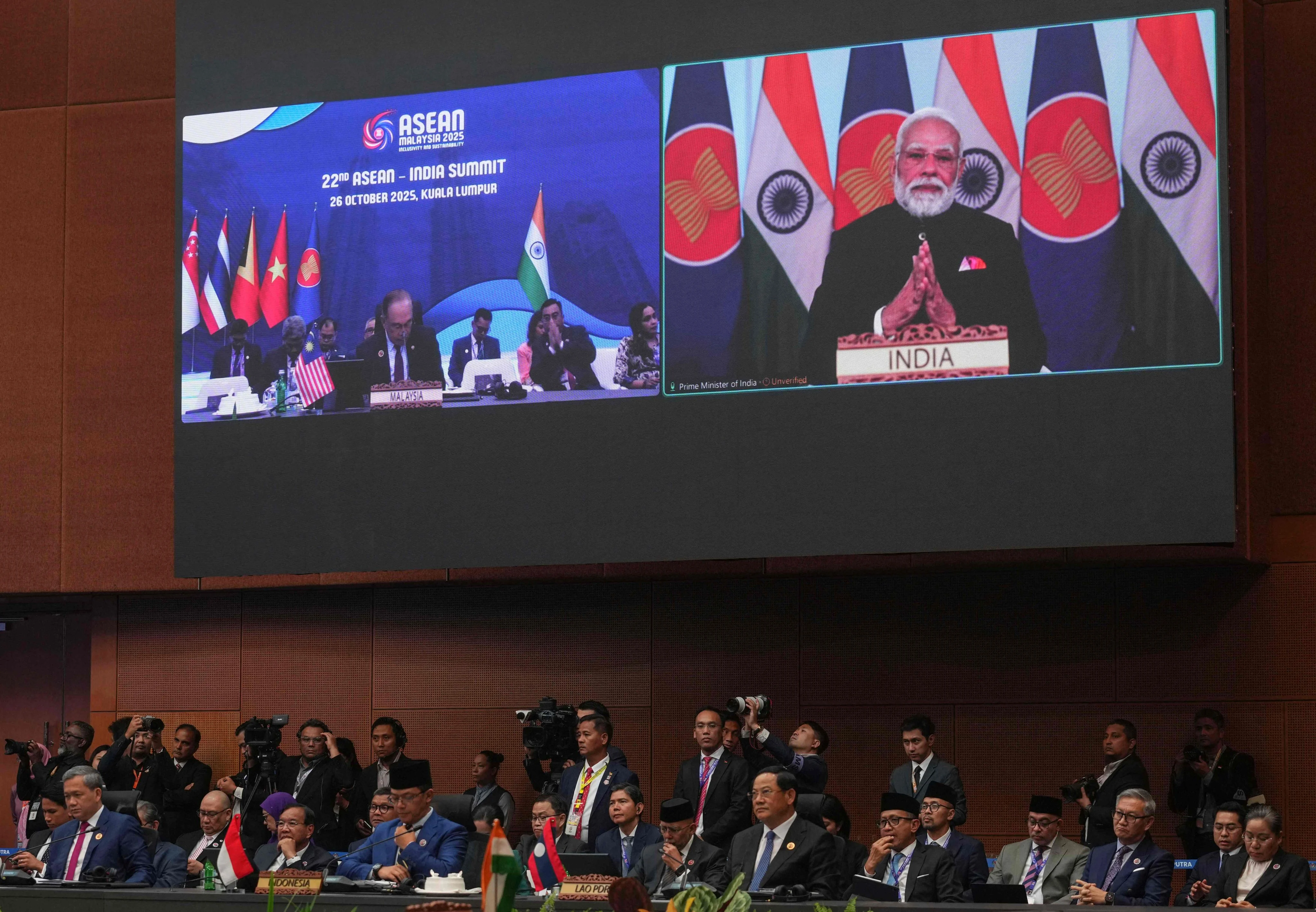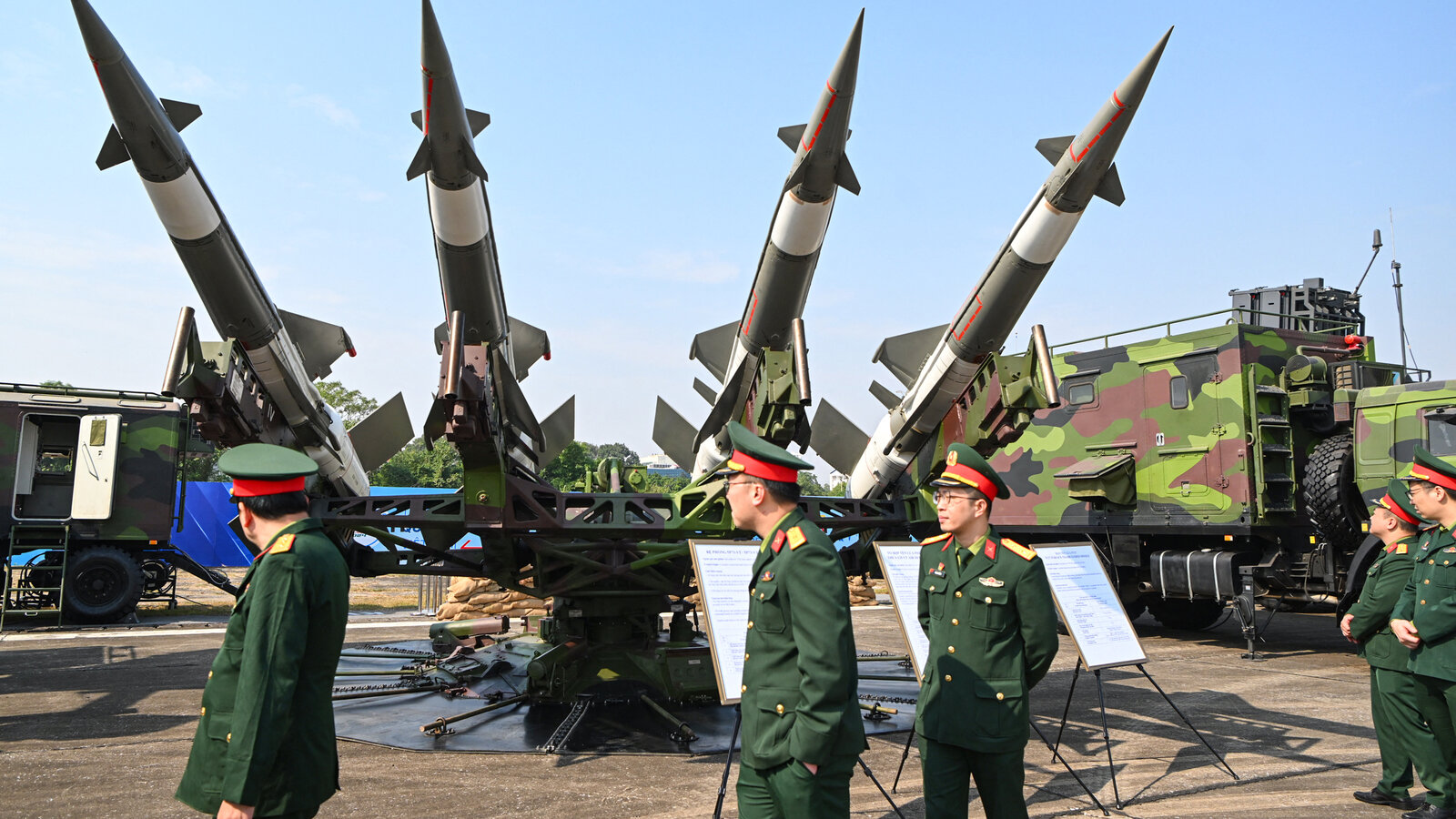Copyright scmp

Indian Prime Minister Narendra Modi’s decision to skip the Asean summit in Malaysia was probably made with an eye on coming crucial state polls in Bihar and to avoid meeting US President Donald Trump amid sensitive trade negotiations, analysts have said. During a special event at the White House last week, Trump had reiterated claims that India would stop buying Russian oil. The US president then attended the Asean meeting in Kuala Lumpur before departing for Japan on Monday. Modi addressed the summit virtually, touching on a host of issues such as the need for a review of an India-Asean Free Trade Agreement, boosting tourism and maritime cooperation as well as pledging to support the humanitarian efforts of East Timor, the newest member of the Association of Southeast Asian Nations. Indian Foreign Minister Subrahmanyam Jaishankar, who led a government delegation, met US Secretary of State Marco Rubio in Kuala Lumpur on the sidelines of the Asean summit on Monday. Jaishankar said in a post on social media: “Appreciated the discussion on our bilateral ties as well as regional and global issues.” The meeting occurred at a time when India and the US are trying to negotiate a bilateral trade deal, which according to Indian media reports is in the final stages. “If he [Modi] was there and ended up in a meeting with Trump, I think with Trump’s proclivity to say all kinds of things publicly and the expectation that Modi would also reciprocate publicly, [it] would have created an awkward situation,” said Harsh Pant, an international relations professor at King’s College London. “Wariness about Trump would also have been a factor” for Modi not to take part in person, given that the trade deal was still being negotiated, Pant added. Last week, Indian Commerce and Industry Minister Piyush Goyal emphasised that India would not rush into any trade agreements or accept terms that would restrict its trading choices. India already faces 50 per cent US tariffs, of which 25 per cent are on account of its crude imports from Russia. Trump has been piling pressure on both China and India to stop their purchases of discounted Russian oil supplies amid Washington’s efforts to end the Ukraine-Russia war. Analysts say India has been pushing for a trade deal with the US to bring down import tariffs below 20 per cent, the benchmark level most countries in Southeast Asia are facing. Uday Chandra, an assistant professor at Georgetown University in Qatar, said Modi tended to prioritise forums such as the G20, the Quad and bilateral summits with major powers where India could project itself as an equal rather than as a secondary participant. “In contrast, Asean-centred meetings, while important regionally, often operate via consensus decision-making and hence, dilute India’s voice amid a crowded field of middle powers,” he said. Pant noted that Modi not attending the Asean summit in person would not have made much of a difference to India’s trade ties with the bloc, including individual member states, since he had regularly attended previous meetings. Modi’s decision to stay at home is also because he is spearheading the electoral campaign of his Bharatiya Janata Party (BJP) in the state of Bihar where it is facing a strong challenge from Tejashwi Yadav, an Indian politician who is the son of former chief ministers Lalu Prasad Yadav and Rabri Devi of the Rashtriya Janata Dal party. Bihar state polls are due to be held in two phases on November 6 and 11. The elections in Bihar are critical for the future of the BJP-led federal coalition as it could set the stage for a string of other state polls in Assam, West Bengal, Kerala and Tamil Nadu. Last year, the BJP lost its absolute majority in parliamentary elections for the lower house, though it has since recovered political ground by scoring important wins in state polls in Delhi and Maharashtra. “This is an intense electoral season in India. Modi is the key in the hotly contested Bihar elections, which has significant implications for the stability of the [federal government],” Chandra said. The BJP-led federal coalition government is reliant on crucial support from Nitish Kumar Yadav’s Janata Dal United party, which is influential in Bihar. Kumar has often switched political sides, an issue which makes the federal coalition vulnerable, analysts say. A BJP triumph in Bihar would diminish any chance of Kumar exiting the ruling coalition, they said. Modi had also in the past delegated multilateral diplomacy to Foreign Minister Jaishankar, Chandra said. “The message is that India’s engagement with Southeast Asia is steady but no longer reliant on leader-level appearances,” he added.



